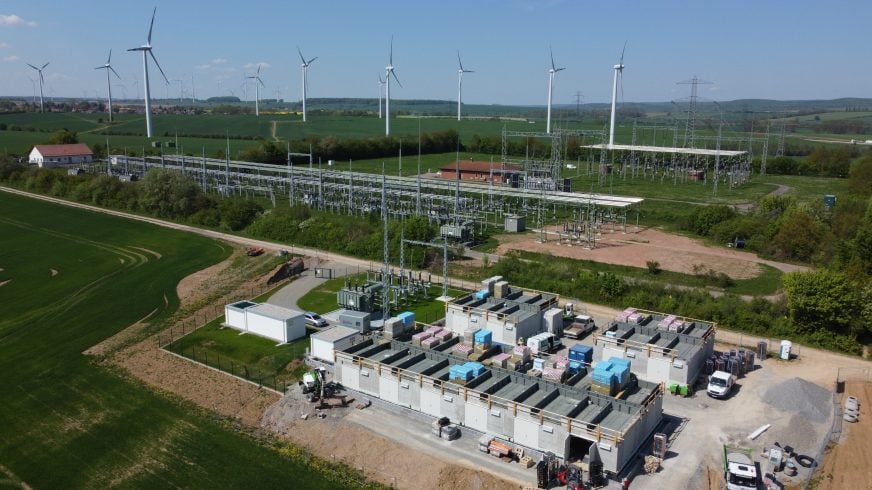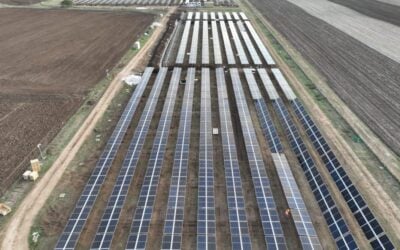
The backing of new Electricity Market Design proposals by the European Parliament is welcome, but the plan still falls short in its support for energy storage technologies.
That’s the view expressed by two influential European trade groups, the European Association for Storage of Energy (EASE) and the Energy Storage Coalition.
Enjoy 12 months of exclusive analysis
- Regular insight and analysis of the industry’s biggest developments
- In-depth interviews with the industry’s leading figures
- Annual digital subscription to the PV Tech Power journal
- Discounts on Solar Media’s portfolio of events, in-person and virtual
Yesterday, 55 Members of the European Parliament (MEPs) voted in favour of the Electricity Market Design reforms put forward earlier this year by the European Commission. The European Union (EU) legislative body’s Industry, Research and Energy Committee voted, with 15 against and two abstentions.
The committee also voted 47:20 with five abstentions to open negotiations on the design reforms with the European Council, although the full House will have to now vote on that step for it to go ahead.
The proposals would see the wider use of contracts for difference (CFD) schemes to encourage energy investment and the setting up of an EU marketplace for power purchase agreements (PPAs). Perhaps most importantly for energy storage, it also places a high level of value on flexibility.
As regular readers of Energy-Storage.news will likely already know, the reforms are aimed at addressing strategic vulnerabilities in Europe’s energy sector, which had been laid bare by last year’s energy crisis.
They will also support the decarbonisation of the economy and uncoupling from dependence on Russian fossil fuels imports, the EU hopes, while they also underpin much of the European Green Deal and its pledges on reaching a net zero economy for the bloc by 2050.
The EU has been praised for recognising that energy storage will play a crucial role in those aims, although again, as regular readers will note, it took a while for this to happen.
Nonetheless, European Commissioner for energy Kadri Simson has said publicly that energy storage is the “centrepiece” of the energy transition and singled out the recent formation of the Energy Storage Coalition by a collection of different renewable energy and clean technology groups as a worthwhile development.
The Energy Storage Coalition sent a statement to the media, including this site, welcoming the adoption of the Electricity Market Design report at the parliamentary level. Doing so “sends a strong signal on the importance of flexibility” – a key attribute batteries and other storage technologies bring to the power sector.
Indeed, the report itself highlighted that “the most necessary deployment of variable renewable energy generation will reach its full potential only with the deployment of additional storage,” as well as identifying energy storage as an enabler of energy security for Europe.
The new, low-carbon energy system the EU wants to see would require regular assessment and reporting from Member States of the flexibility of their own power grids, as well as EU-wide assessments.
The coalition welcomed specific aspects of the proposed assessment regime, including some that have been newly revised since the report was first published at the beginning of the year.
These included an extension of assessment periods to 10 years rather than five as originally proposed, which the coalition said was positive as some renewable energy and storage projects will take longer than five years to execute.
Other positives were the inclusion of reporting of renewable energy curtailment levels, grid congestion, and ancillary services in assessments, and the modelling of high gas price scenarios in case of future gas price shocks like we saw last year.
Missed opportunities
That said, the EU’s proposed design still missed the opportunity to deal with ‘double charging’. Under the regulatory regimes of most European countries, energy storage is treated as both generation and supply to the grid.
This means energy storage resources are charged fees for the use of the grid twice; once when charging from it and again when discharging power into it. Meanwhile, fossil fuels generators, which the EU is seeking to disincentivise, are not levied twice, putting energy storage at a “competitive disadvantage” by comparison, the Energy Storage Coalition said.
Another shortcoming was that a proposed carbon intensity cap for capacity markets is, in the coalition’s view, set too high, at 550g of CO2 per kWh. The coalition called for that cap to be “progressively lowered to reach net zero by 2040”.
The Energy Storage Coalition was formed by trade groups SolarPower Europe, Wind Europe and EASE, together with sustainability investment and accelerator group Breakthrough Energy.
In a separate statement, EASE also welcomed the latest news, with the same caveats as the coalition offered.
“The result of today’s vote is a positive step to better align Europe’s electricity market towards our climate and energy goals,” EASE policy officer Thomas Lewis said.
“The introduction of flexibility support schemes will give investors’ confidence in energy storage technologies to provide the flexibility needed to integrate further renewable energy.
“EASE is pleased to see that this deal ensures in-depth assessments for flexibility at both the national and European level, and crucially introduces a Union Strategy on Demand Response and Energy Storage from 2025 with the possibility of EU-level targets.”






